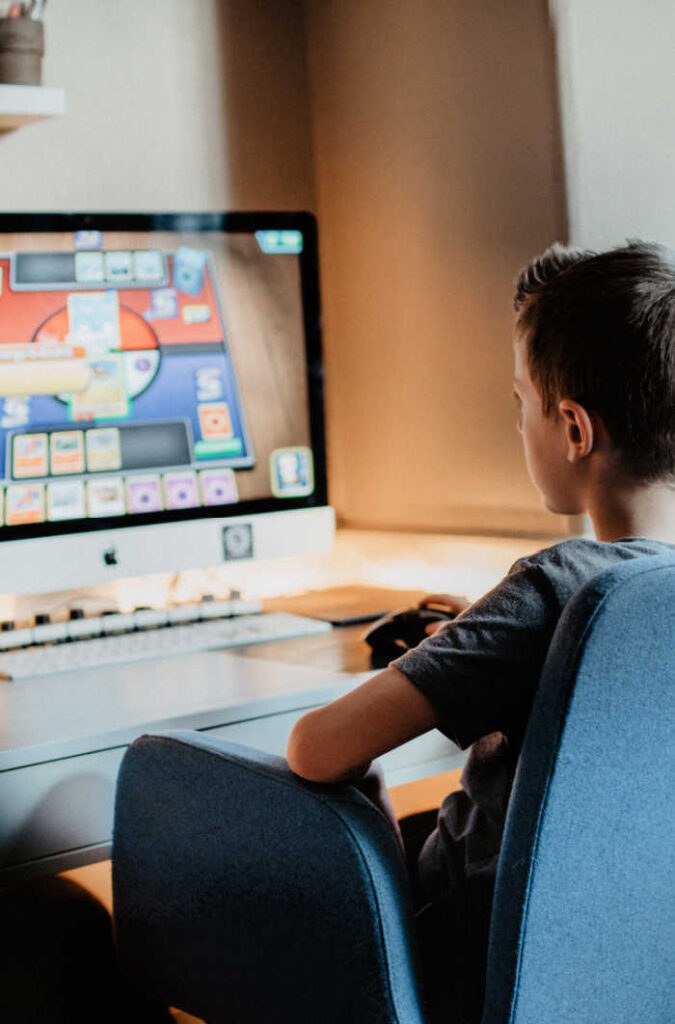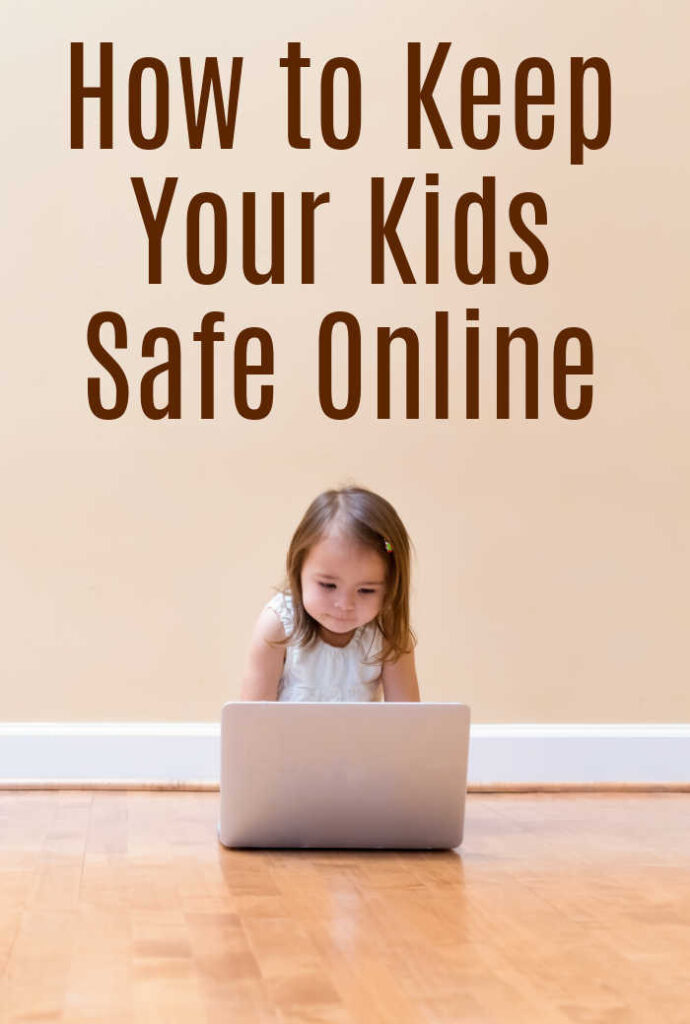5 Tips For Keeping Your Children Safe Online
According to the National Crimes Records Bureau, there was a 400% increase in cybercrimes against children between 2019 and 2020. This worrisome statistic has many parents asking, “What can I do to keep my children safe online?”
Of course, you may want to keep your children offline completely.
But in this modern age of connectivity, is simply unplugging an option?
Be sure to check out even more of my helpful parenting tips, too!
Pros And Cons Of Your Children Being Online
Before you throw your router out the window and swear off the internet entirely, let’s consider both the pros and cons of allowing your children online access.
Pro: Online Education
Not only is the internet a vast repository of knowledge, but it may be your child’s primary educational tool.
In recent years we’ve seen a massive expansion of online education for children, and certain elements won’t be going away soon.
With most school assignments requiring internet research, online submissions and assignment forum participation, barring your children from the internet may not be a reasonable action.
Con: Risk of Data Breach
Many websites will ask for sensitive information, and not all of these sites are trustworthy.
It can be more difficult for children to discern a scam from something legitimate, and one mistake could mean a breach of valuable data.
In addition, if your children are not educated on proper cybersecurity procedures, these breaches could expose your home address, identity, or credit card information to online cybercriminals.
Pro: Stay Connected With Friends
The internet is the primary way most children stay connected today, and removing that access could mean ostracizing them from their friend groups.
Friends are a vital part of growing up, and your children may resent you for cutting off their methods of communication.
While it’s perfectly understandable to remove internet privileges when necessary, removing them completely could make your child an outcast and feel disconnected from their friends and peers..
Con: Serious Distraction
While the internet can provide many great sources for education, it can also serve as a severe distraction.
With video-sharing websites, online video games and endless other diversions, it’s easy to see how internet access could disturb your child’s productivity.
5 Important Tips To Keep Children Safe Online
Despite its advantages and disadvantages, you will likely need to allow your children access to the internet.
That’s why your focus should be on keeping your children safe online and showing the right online behaviors for secure browsing.
Here are five tips we recommend for keeping your children safe online.
1. Make Sure Your Cybersecurity Is Up-to-date
Basic cybersecurity measures, like updated antivirus software, can help stop malicious software from entering your child’s computer.
You can also use online search engines to ensure your children only associate with safe individuals.
If you believe your child may be interacting with someone who could compromise their data, you can conduct a username lookup to verify their identity.
In our house, we have a basic rule that my children do not friend anyone they do not know in person.
2. Educate Your Children to Keep Kids Safe Online
While it can be a complex subject to talk about, educating your children about online dangers can help them recognize threats early.
As soon as you deem it appropriate, talk to your children about viruses, malware and the proper tenants of digital citizenship.
Let them know about the different kinds of scams, how to conduct an email search, and when it’s appropriate to use sensitive information. https://www.consumer.ftc.gov/articles/0017-kids-and-computer-security
3. Monitor Their Activity (Within Reason)
You can’t keep an eye on your children at all times, but it’s best to monitor their online activity to some degree.
Of course, make sure to establish boundaries and give your children some privacy.
But checking in occasionally and making sure they aren’t visiting dangerous websites or giving out information can be beneficial.
4. Lead By Example To keep Children Safe Online
It’s good to set rules for online interactions, but make sure you follow those same rules.
If your children see you behaving inappropriately online, they may think it’s okay to act in a similar way.
Take stock of your online actions, and find ways to be safer online.
That way, your children will better understand what it means to be a good digital citizen.
5. Encourage Changes In Behavior
If you see your children engaging in negative or dangerous online activity, it’s best to intervene.
Find a way to broach the subject respectfully, but let your child know they need to obey specific online rules.
Interacting with strangers in chat rooms, sharing sensitive data, or allowing others access to their network is not okay.
If you help your child change these behaviors, they can be far safer online.
The Internet Is A Valuable Tool When Used Correctly
The internet has become a vital part of children’s lives, and kids of all ages are spending much of their time online.
While you can’t cut off access, you can take small steps to ensure they can browse safely.
By installing proper cybersecurity measures, verifying the identity of those that interact with your children, and teaching your kids good online behaviors, you can rest easy knowing they are safe in their online interactions.
About the Author
Ben is a Web Operations Executive at InfoTracer who takes a wide view from the whole system. He authors guides on entire security posture, both physical and cyber.












